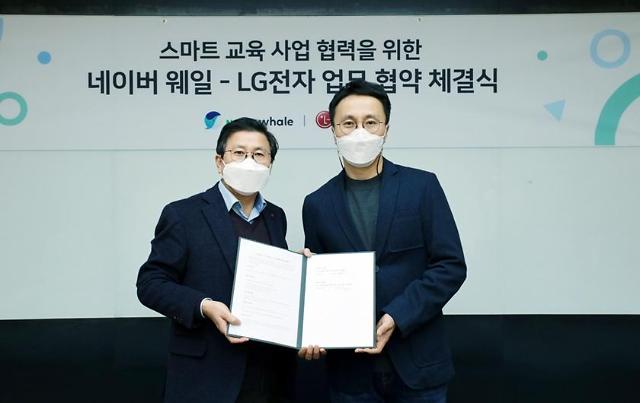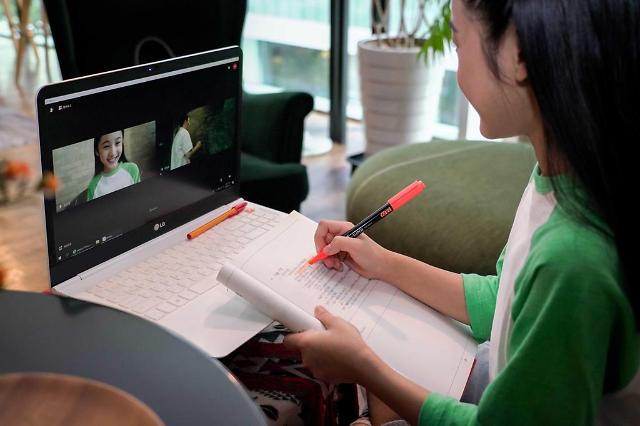
[Courtesy of Naver Whale]
SEOUL -- As a novel coronavirus pandemic boosted the demand for smart education and the expansion of digital textbooks and online classes, Naver, a leading portal service operator in South Korea, competes with foreign technology giants to propagate an open education platform by using its freeware web browser.
"We want to be an alternative, and we want to be a better option," Kim Hyo, who heads Naver Whale, a freeware web browser, said, vowing to provide a free alternative platform. "We are creating an open platform to help local education authorities and schools create better education services."
In January, Naver teamed up with LG Electronics to provide digital education solutions and develop a cloud-based laptop that supports a convenient user experience through the operating system of Naver Whale. Kim called for good management, saying public tablets for classes at schools are not used or managed well. "There is no guarantee that it will be used well just by providing a device to education sites."
"We are a complete, open platform and guarantee customization to users," Kim said. "Other platforms take the approach of just using what we make well. If a user introduces it, it can be very good at first, but if the provider changes its policy significantly, users should follow or take measures. This is why we started creating a browser before we created the platform."
When users are subordinated to a platform developed by a global company, its policy will sway them at some point, Kim said, adding his company seeks a differentiated open platform through close discussion with education authorities and teachers to reflect their "useful specifications or functional requirements as much as possible."
Kim emphasized collaboration with Naver Cloud, which is in charge of back-end operations and supports digital transformation, saying consultations on the adoption of cloud is needed on how to connect platforms and infrastructure. "When trying to apply a platform to public education sites, it is often not possible to use only the platform without touching old infrastructure."
"The basic direction is to continue to increase the number of Whale browser users," Kim said, ruling out the monopoly of data as an asset and demanding an autonomous attitude by school authorities. "I don't know what Google is like, but Naver thinks it is not a good strategy. Education, like health care, is a public sector."
Kim said his company signed a deal with education authorities in the province of South Gyeongsang to provide a pilot service targeting some 400,000 students and teachers at 1,100 schools from March. "The platform can serve as a window to easily provide services to large-scale users in the education market," he said, suggesting it will be better for education offices and schools to think about it on the spot than Naver to analyze it all by itself.
The COVID-19 pandemic triggered a social debate on how and what to use for online classes, but what tools to use cannot improve the quality of education, Kim said. "To help participants focus on the core of education and provide better services, we will play the role through our platform."
"It is the role of platform providers to provide devices that students can use comfortably," Kim said, calling for a platform that is easy to manage and comfortable. "I think we should have an environment of one device per person in a non-face-to-face education environment like free school meals."
(This article was based on an interview conducted by Aju Business Daily reporter Im Min-cheol.)
Copyright ⓒ Aju Press All rights reserved.




View more comments